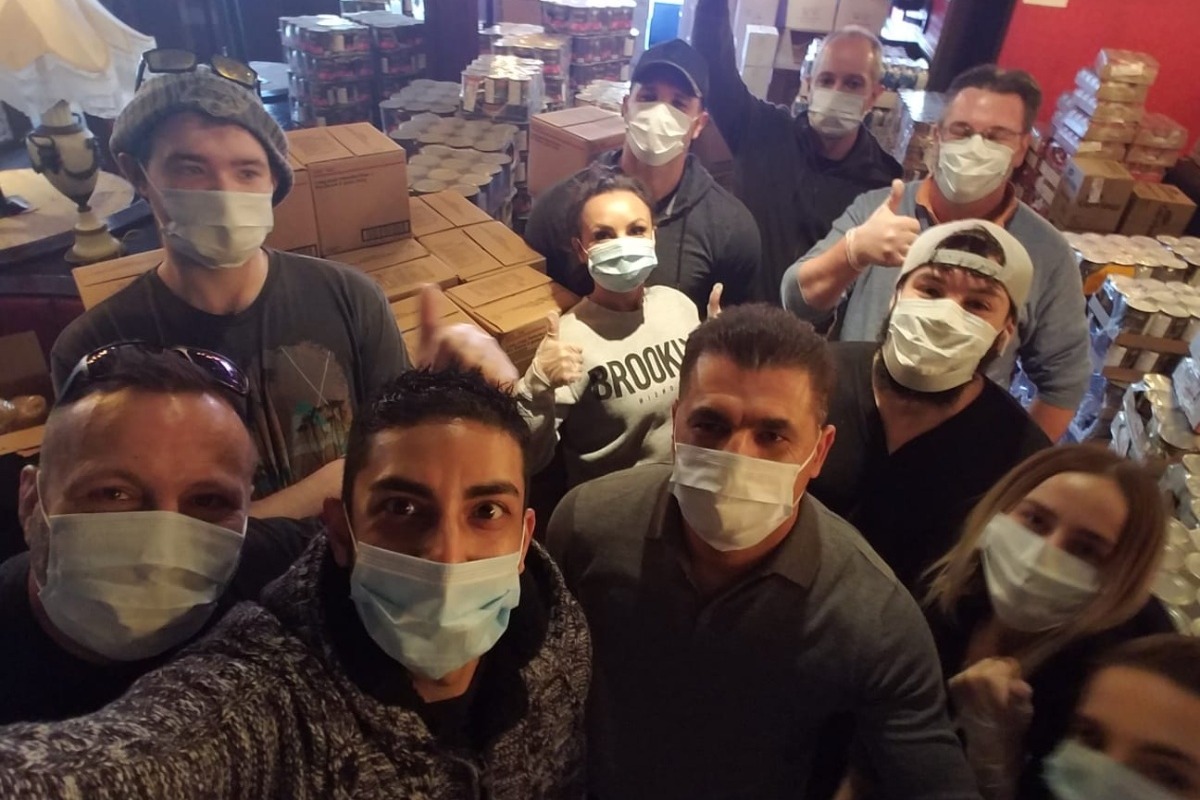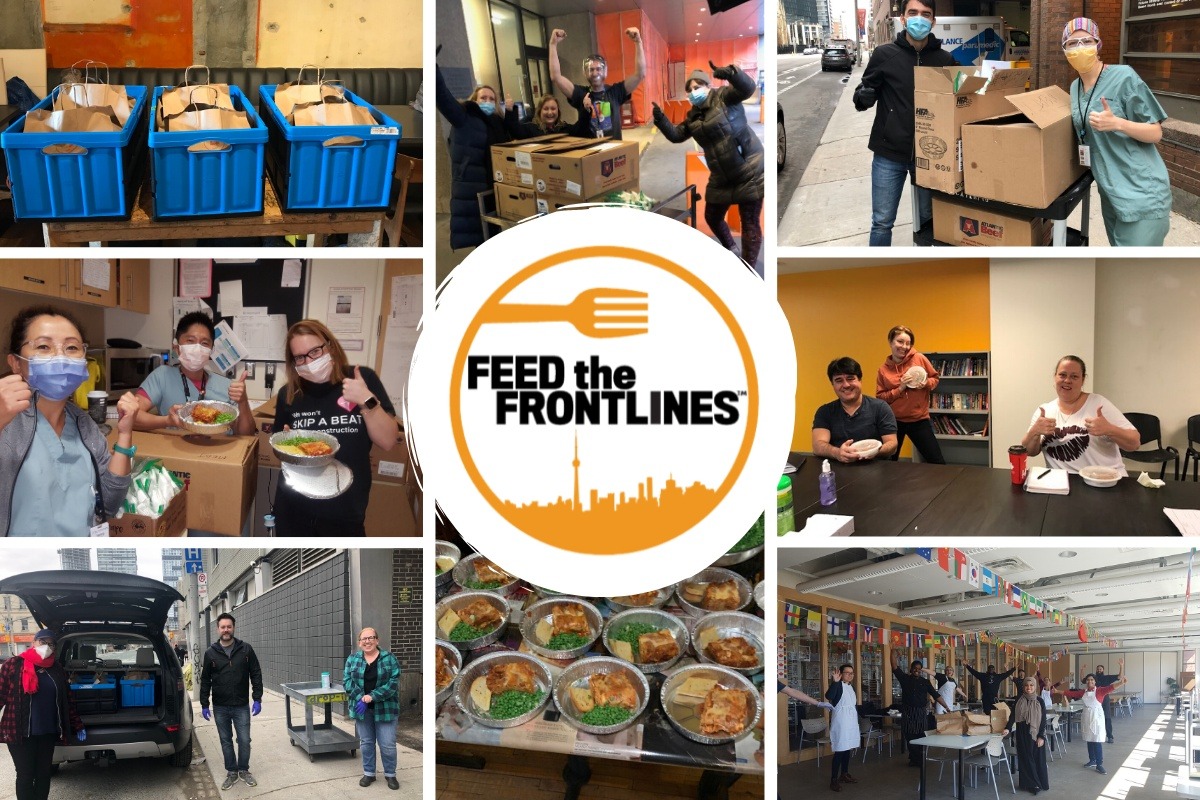How crowdfunding is transforming COVID-19 community response
Why It Matters
Crowdfunding is the fastest-growing trend in fundraising — and it’s a particularly useful tool in times of crisis. As communities navigate COVID-19, crowdfunding campaigns are popping up to move money and supplies to those who need them, demonstrating crowdfunding’s potential as a rapid-response, grassroots fundraising tool.
While we haven’t faced a challenge quite like COVID-19 in nearly a century, we are more prepared in some ways to tackle a pandemic now than before SARS or Ebola. That being said, there are still challenges, shortages of personal protective equipment (PPE) for healthcare workers being a major one, so citizens and communities are stepping in, crowdfunding and volunteering to fill the gaps that exist.
In general, crowdfunding is one of the most quickly growing tools in modern fundraising. Crowdfunding campaigns have raised $34 billion globally, and are on pace to raise nearly 10 times that within the next decade.
Crowdfunding has been a particularly useful tool to help communities through natural disasters. For example, when the wildfires hit Fort McMurray, destroying homes and businesses, GoFundMe saw the largest collective donation from Canadians towards any single event on the platform, at over 10,200 individual donations to 183 separate campaigns for a total of $1.1 million.
To tackle COVID-19, crowdfunding campaigns in Canada are already seeing rapid traction, some raising tens of thousands in a matter of days, to supply medical devices, support frontline workers, and to help vulnerable communities in need. This is a sign that people are mobilizing to support their communities and come together through unprecedented times.
To tackle COVID-19, crowdfunding campaigns in Canada are already seeing rapid traction, some raising tens of thousands in a matter of days, to supply medical devices, support frontline workers, and to help vulnerable communities in need.
GoFundMe has now hit $3 billion per year donated, most commonly to help communities or families through tragedies. Based on this, it seems likely that crowdfunding will continue moving to the mainstream in the social impact world following the COVID-19 crisis.
1. Raising supplies and money for frontline workers
The Home Front is crowdfunding to help support frontline health workers through the COVID-19 pandemic.
The organization is crowdfunding $10,000 to buy personal protective equipment (PPE) for hospitals and clinics and snack kits to help sustain workers. The campaign is raising funding for cities in South Western Ontario, including Toronto and London, where The Home Front has operating chapters.
As organizer Jenessa Olson writes on the campaign’s GoFundMe page, “Over the last few weeks, we have polled countless professionals who have a few key worries: concerns about lack of equipment; the inability to shop for themselves after being exposed to COVID at work; the fear of infecting their loved ones at home; and many many other worries. These are the workers protecting our communities and we want to support them!”
With their raised funds, the campaign is also helping to provide alternative accommodations for health workers (so they don’t infect their families or loved ones) as well as contribute to the development of respiratory equipment, such as ventilators.
2. Delivering crisis kits for seniors

Led by the DreamMind Group, which owns restaurants including The Moscow Tea Room and The Waverly in Ottawa, Operation Ramzieh is raising money to distribute crisis kits of food staples, in order to keep seniors safe at home.
“The world is facing a health crisis and the lives of all seniors are at risk,” the organizers write on the campaign page. “Being amongst those who are the most vulnerable and susceptible to contracting COVID-19, these members of our community will have the most difficulty acquiring items they need during this dire time, and we have a moral obligation to help.”
DreamMind president Abbis Mahmoud personally contributed the first $40,000 to kickstart the campaign. “Named Operation Ramzieh after his mother,” reads the campaign page, “Abbis is confident that they can help others just as his mother did by feeding those in need back in his home country of Lebanon.”
Other Ottawa-based companies have also offered delivery vehicles to move crisis kits to recipients. The entire operation is volunteer-driven.
Abbis’s initial donation of $40,000 is enough to feed about 1200 people — and they’ve raised a total of more than $70,000 to date from nearly 700 individual donors. The campaign’s goal is to raise $200,000 to distribute an estimated 650+ kits.
The crisis kits cost $30 and provide enough food for 10 days. They include staples such as rice, granola bars, spaghetti, tomato sauce, sources of protein, milk and bread.
3. Providing bulk meals to frontline health workers

One of the biggest challenges for healthcare and other service workers through COVID-19 response is maintaining their own health while working. That’s where Feed the Frontlines TO has stepped in, to help feed healthcare workers and social services teams.
Thanks to the initiative, writes the organizers on the campaign page, “our local restaurant workers stay employed and our frontline staff are well-fed and nourished with the spirit of the community — it’s a two-fer!”
The initiative is crowdfunding $150,000 to pay for large meal orders from local restaurants to be delivered to workers and teams on the frontline. An example donation: $100 purchases five meals for Toronto healthcare and social services workers. Participating restaurants take special care in preparation and packaging to ensure the safety of the food.
The campaign was created by Adair Roberts, a Torontonian who works in the mental health and addictions sector. The campaign is supported by a group of volunteer residents who aim to bring healthy meals to frontline health workers while also keeping restaurant workers employed.
4. Taking care of most vulnerable
An online campaign to support vulnerable communities with direct cash transfers in Vancouver crowdfunded more than $50,000 in less than two weeks.
As one of the organizers, Yolanda Clatworthy, said in an interview with Vancouver Is Awesome, “the most vulnerable people can’t wait days or weeks — or even longer — for government funding.” Vulnerable people need support now. So their team turned to crowdfunding to help make that happen, and have now set a $100,000 goal.
Some of the specific vulnerable populations the campaign will support include “Indigenous people, people of colour, transgender and nonbinary people, and disabled people.”
Families and people in need can apply through this online form to receive up to $100. According to the organizers, “funds will be distributed by eTransfer or in cash through neighbourhood houses, for those without banking access.”
Our team is working around the clock to deliver insightful stories, analysis, and commentary on the effects of COVID-19 on the social impact world. If you like our content, please consider becoming a member. Start a 14-day free trial now.
